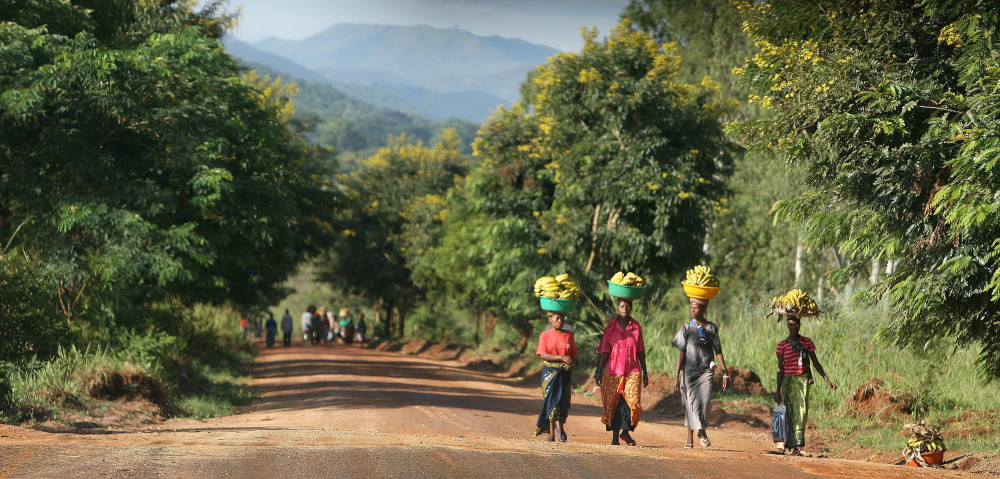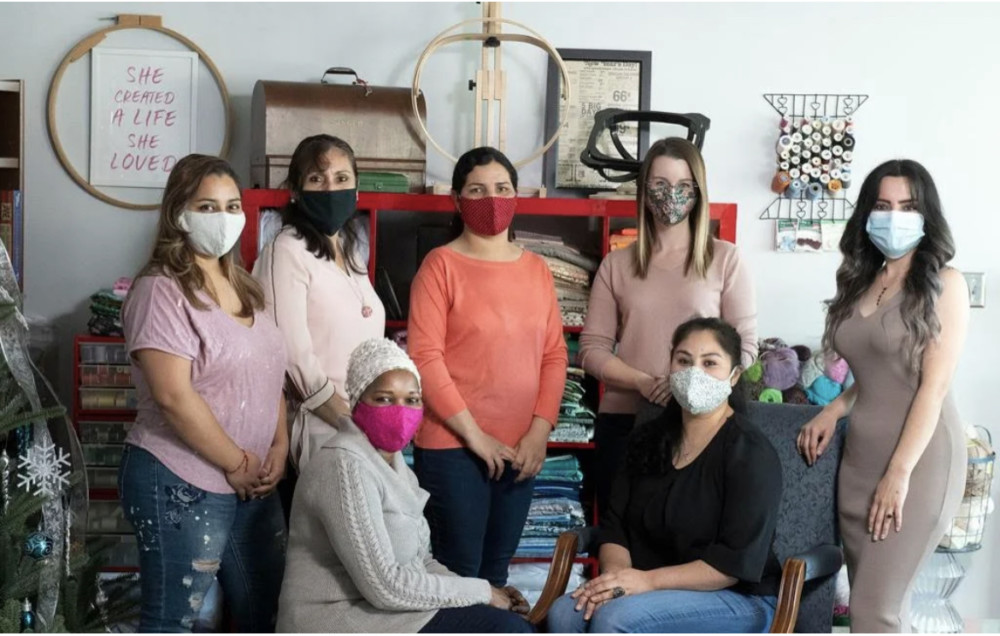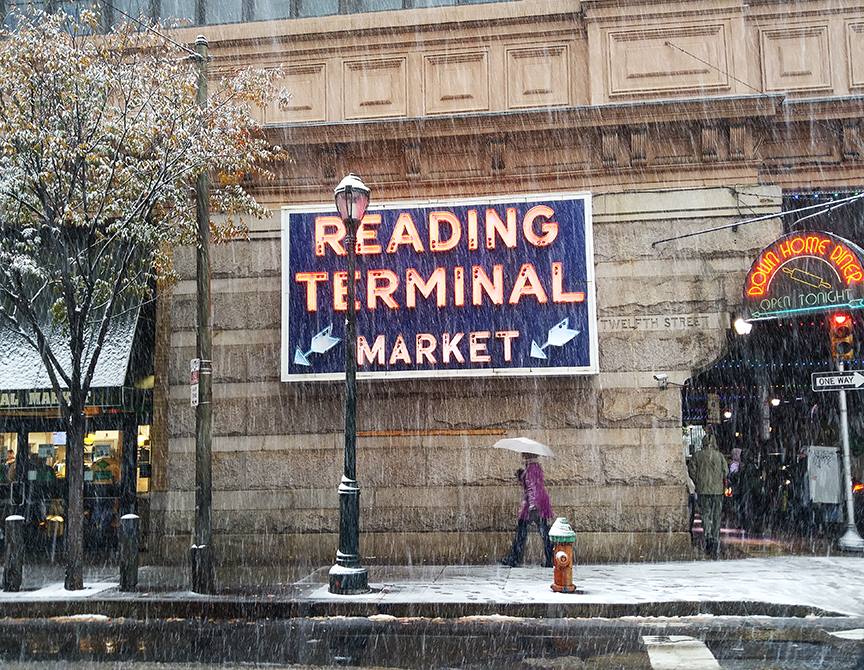By Glen Rosales
Albuquerque Journal, N.M.
ALBUQUERQUE, N.M.
Editor’s note: Today, the Journal continues its annual Help for the Holidays series, spotlighting areas in which community members can reach out to neighbors in need. The series concludes next Sunday in Living.
Miliana Toyi arrived in Albuquerque in 2013 after living for years in a squalid refugee camp in Tanzania.
Forced to flee her native Burundi because of the spillover from the civil war in neighboring Rwanda, Toyi only escaped the camp because of a lottery that plucked her from a bad situation and dumped her in New Mexico with virtually no resources.
She arrived here speaking no English and with almost no marketable skills.
“I am trying to learn good English,” she said haltingly with some prompting from Nkazi Sinandile, co-founder of the extremely grass-roots organization, New Mexico Women’s Global Pathways. “And to sew. But no money.”
How you can help
New Mexico Women’s Global Pathways helps women refugees gain language, as well as marketable career and business skills.
Immediate needs are financial support, fabric, beads and heavy-duty sewing machines. Its long-term needs are a dedicated full-time location, volunteers for administrative assistant work, child care, a website creator and English tutors.
Contact Nkazi Sinandile, 505-435-5741, to arrange donation dropoff at the Robert M. Hawk PB&J Family Services building on San Pablo SE just south of Zuni SE.
Find out more about the organization at irrva-com.webs.com/womensglobalpathways.htm.
Sinandile, herself an immigrant from South Africa, saw that refugees like Toyi were arriving in Albuquerque with no means to support themselves or even hope of finding a job because of language and training barriers.
The U.S. State Department approves refugee relocation and provides three months of financial support to help resettled refugees get their bearings and begin language classes, start to understand American culture and, it is hoped, land a job.
But that is a forlorn hope for many refugees, like Toyi, who are not properly equipped to deal with life in America, said Joleen Carrico, who has worked as a contractor with Human Services as a job developer and also volunteers with Global Pathways. That amount of time, she said, is simply not enough to learn English and become employable.
“The need to develop the skills to find a job,” Carrico said.
Global Pathways is acting as a bridge over that education gap, Sinandile said. “She needs to learn,” she said of Toyi, but could be referring to any of the refugees. “If she can learn English and some skills, maybe she can help herself.”
The beginnings
It is with that hope that Global Pathways came into existence in 2009.
At first the loose organization was fully driven by volunteers and received financial support via a grant from La Mesa Presbyterian Church. But that monetary assistance has dried up, pastor Trey Hammond said, although the organization is still doing everything in its power to support Global Pathways.
“The refugees have a tough go of it,” he said.
Helping them learn English has been Presbyterian’s continuing contribution, but Global Pathways has no permanent home for those classes. Albuquerque Academy students do help on Saturdays, meeting with the refugees on a one-on-one basis at the church to provide some learning assistance.
What they need
For the most part, however, Global Pathways conducts all its services in a borrowed, multipurpose room squeezed into the back of the Robert M. Hawk PB&J Family Services building on San Pablo SE just south of Zuni SE.
Fabric that the women use to sew to make native-inspired garments and handbags are stored in the bathrooms.
Additional English classes are conducted in the same room, as is day care and preschool services provided by Molly Murphy, a former speech language pathologist with Albuquerque Public Schools.
“We need a center so bad,” Murphy said. “When you have a permanent place where you can come, it provides a refuge. It becomes like a home for them.”
Even the basic tenant of Global Pathways — teaching skills like sewing or beading, crocheting or weaving — has proved to be difficult because the refugees are not really realizing the fruits of their labor because there is no way to bring the products to market.
“We’re hoping to do online sales, but we don’t have a website set up to do that,” Sinandile said. “When they work and work and work and don’t see any money, they get discouraged.”
Fabric is at a premium because most of the few donations that come in are remnants, so many of the products created are small like pillows and handbags.
What’s more, there are just five used sewing machines the women can use to produce their products.
A big push
Right now, Sinandile said, there’s a big push on at Global Pathways to produce garments and bags and pillows and jewelry and any other possible products to display and sell in an upcoming, city-sponsored event called “On the Map: Made in AfriQuerque! Arts & Crafts & Global Fusion Fashion Show.”
The event will be Feb. 14-15 at the VSA North Fourth Art Center/N4th Theater, 4904 Fourth NW.
In the short term, native fabric, heavy-duty sewing machines and beads are all desperately needed, Sinandile said.
Long-term, in addition to finding a suitable, full-time location, Global Pathways seeks volunteers for an administrative assistant, child care, a website creator and English tutors.
The far-reaching goals, Sinandile said, are admittedly optimistic.
But, ideally the organization would create a local garment and accessories factory to sell online locally and globally, providing a sustainable income to as many as 75 people a year through a 12-month training program with a living wage and benefits, she said.
That way Toyi and those refugees that follow her to Albuquerque, will not be handcuffed in their integration into the society, Sinandile said.
“I am learning and learning,” Toyi said. “But just no money.”

















































































































































































































































































































































































